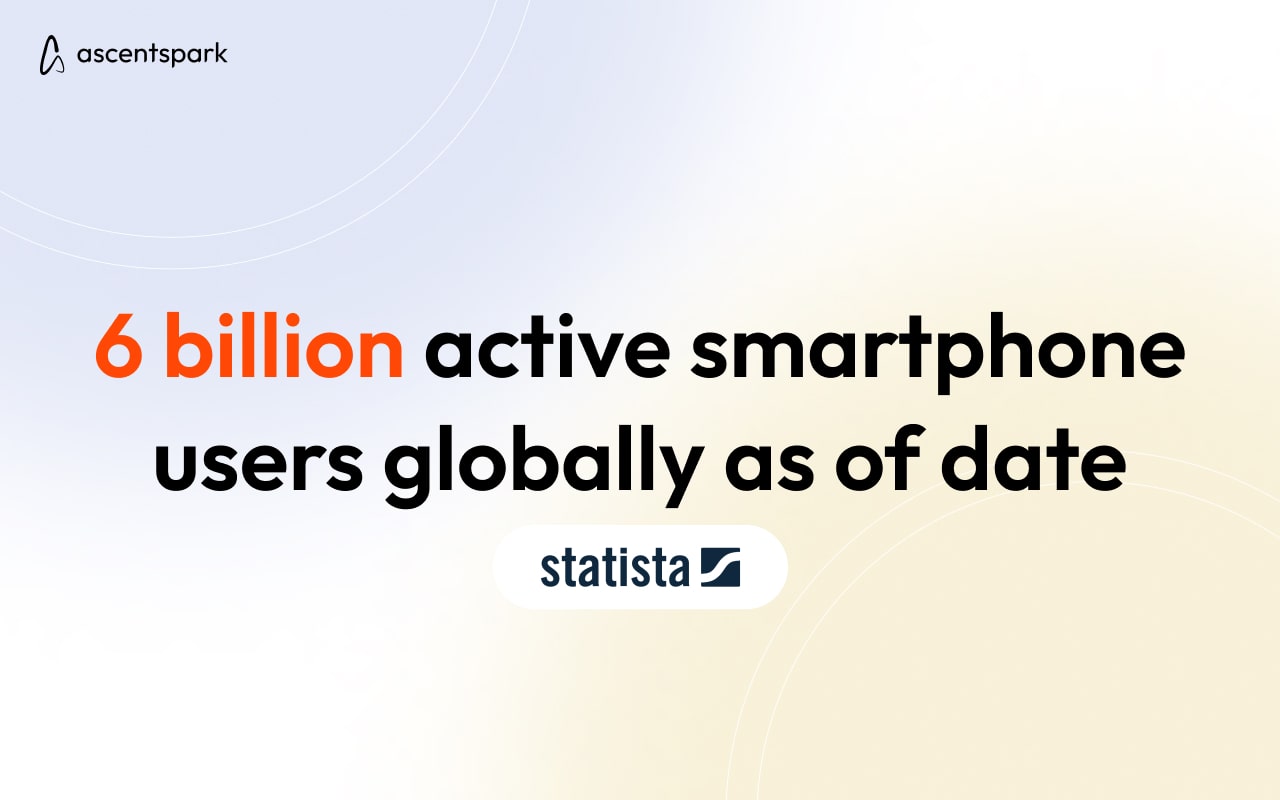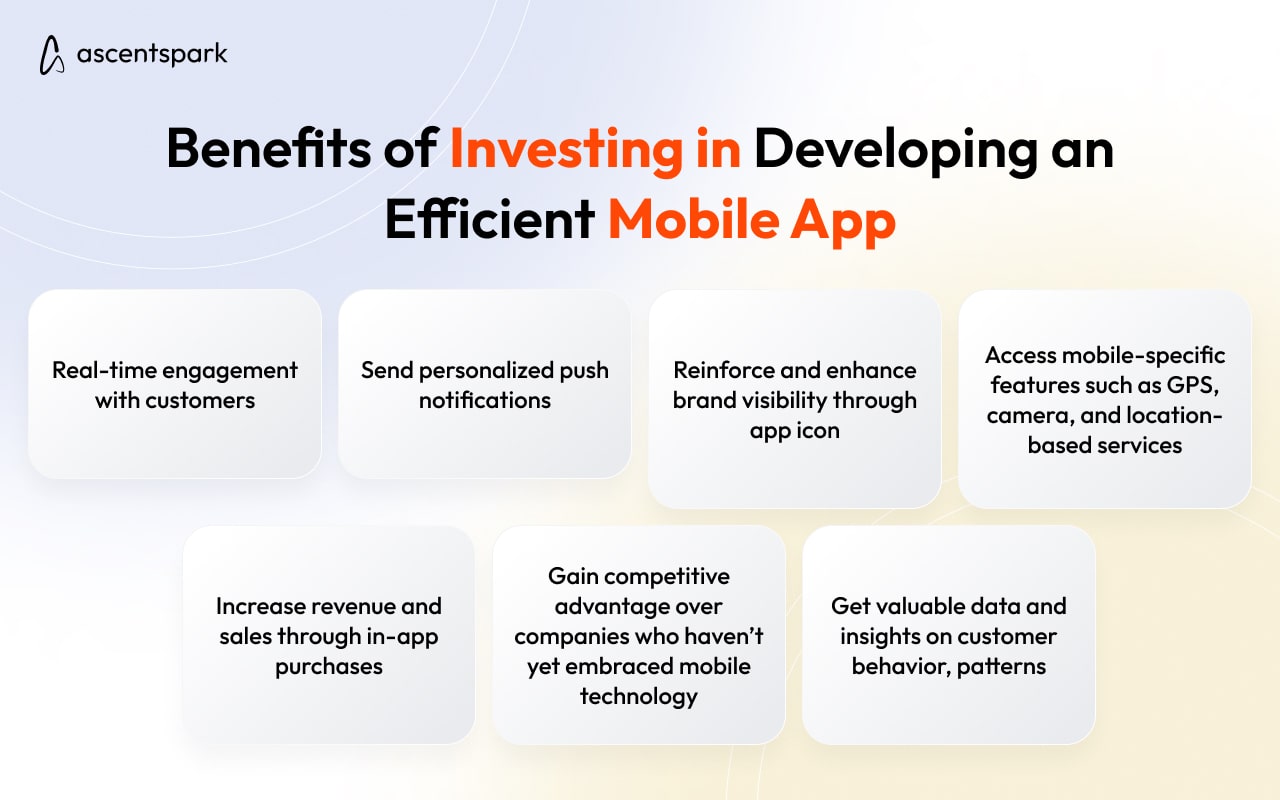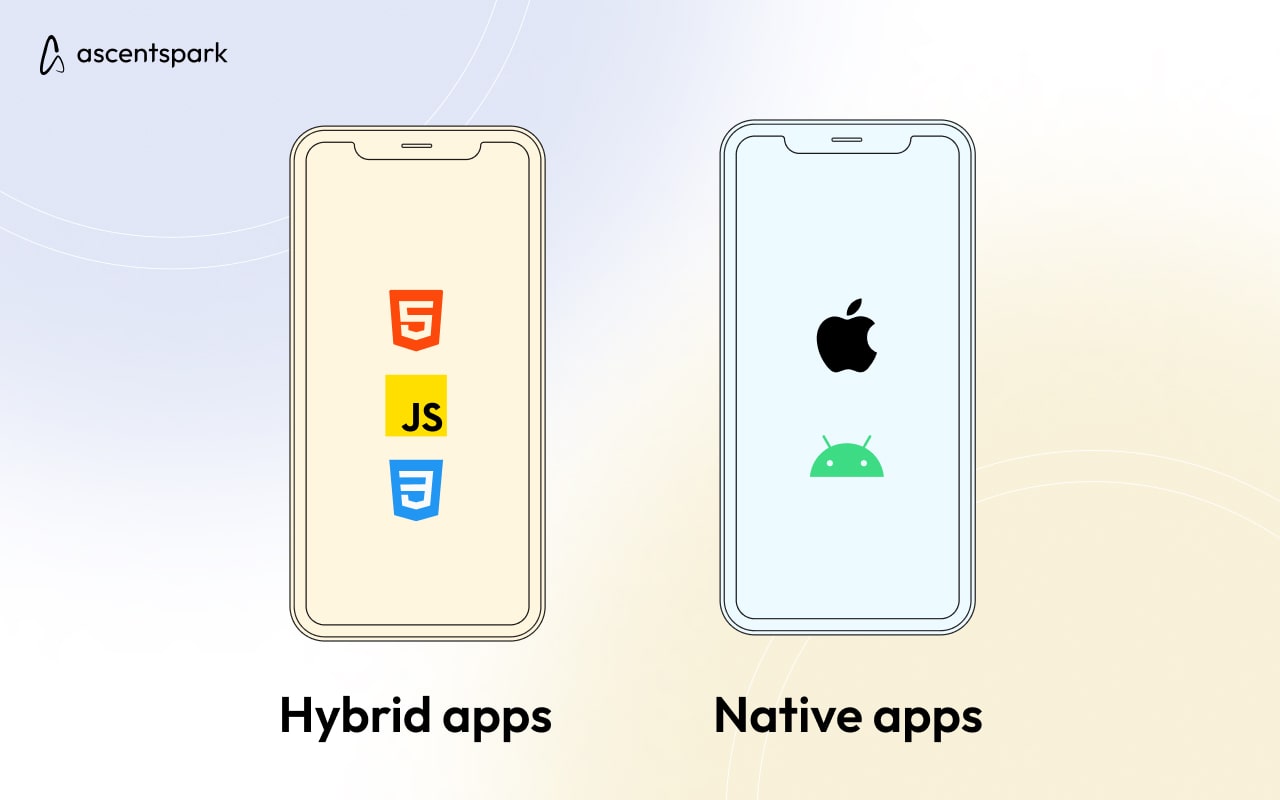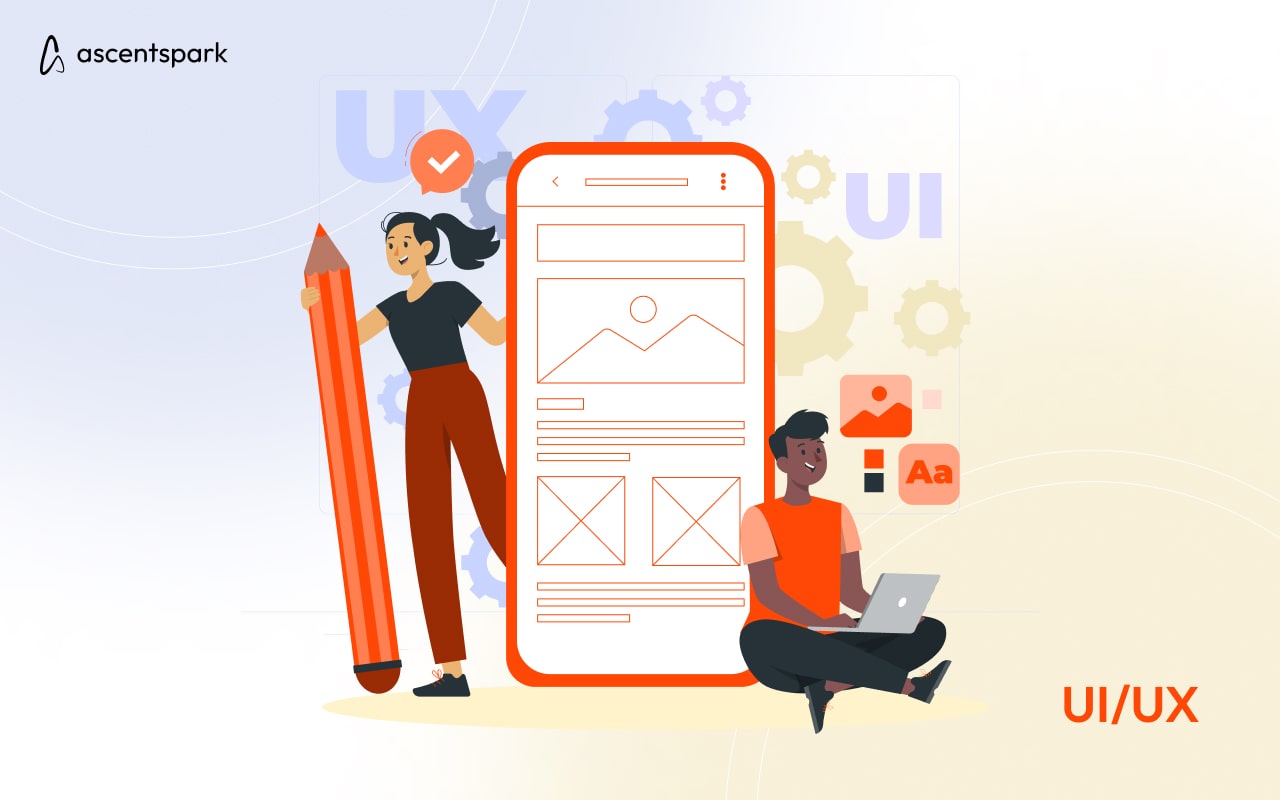As per a study done by Statista, there are around 6 billion active smartphone users globally as of date. With smartphones being omnipresent, it has become important for businesses, no matter small, medium, or large scale, to invest in developing an aesthetically pleasing and responsive mobile app and take advantage of the changing market trends.

However, it is essential to understand how much it will cost your business to build an app in 2023 as per your requirements and what benefits you would reap from your investment.
It is one of the very first questions that several clients with an idea of an app ask us.
The cost of building an efficient mobile app for businesses can vary significantly depending on several factors which we will discuss later in this article.
Investing in developing a good mobile app can provide your business with numerous benefits for the long run.
Benefits of Investing in Developing an Efficient Mobile App

One of the key factors influencing the cost of developing a mobile app is choosing between a Native or Hybrid app. When comparing native mobile apps and hybrid mobile apps built with Flutter or React Native, there are several factors to consider.
Native apps are developed specifically for a particular platform, such as iOS or Android. They offer better performance and responsiveness since they are optimized for the specific platform they are built on and take full advantage of the latest platform updates, APIs, and functionalities, thus providing a seamless user experience.
However, developing native apps requires separate codebases for each platform, resulting in higher development costs.
On the other hand, Hybrid apps are built using cross-platform app development frameworks like Flutter (by Google) or React Native (by Facebook), allowing developers to write code once and deploy it on multiple platforms. They offer access to device features through plugins or libraries, enabling the use of native functionalities.
Hybrid apps may have slightly lower performance compared to native apps since they rely on an additional layer of abstraction. Some complex or platform-specific features might not be readily available or require custom development.
Choosing between native and hybrid mobile app development depends on several factors such as project requirements, budget, timeline, target audience, and desired performance.
Requirements and Recommendations
Native apps are recommended for apps that require maximum performance and utilize specific platform features extensively.
Hybrid apps, built with Flutter or React Native, are suitable for projects where time-to-market, cost efficiency, and cross-platform compatibility are prioritized.

Other Factors Influencing the Cost of Mobile App Development
Complexity of the app: Apps with basic features and simple functionality will generally be less expensive to develop compared to complex apps with advanced features, integrations, and customizations.
Platform selection: The choice of platform(s) on which the app will be developed (e.g., iOS, Android, or both) can impact the cost as the development requires additional resources.
Design and User Interface (UI/UX): Investing in a well-designed and intuitive user interface to keep customers engaged can contribute to the overall cost of the app development.

Backend development and APIs: Requirement of extensive backend development, integration with third-party APIs, or server infrastructure setup and its complexity, can add to the development costs.
Custom features and functionalities: If your app requires unique and custom features, functionalities, or integrations, the development cost will be higher.
Testing and Quality Assurance (QA): Thorough testing and QA processes are essential to ensure the app functions correctly across different devices and platforms. Investing in comprehensive testing can contribute to the overall cost.
Maintenance and support: App development is an ongoing process, and maintenance and support are necessary for bug fixes, updates, and enhancements which adds on to the cost of a running app.
The tentative cost to build a basic mobile app can start from $1000 and go all the way to $50,000 or more.
Many factors like functionality, app type, complexity, vendor selection, and the development approach are likely to influence the cost of the mobile app development.
While cost is a significant consideration, it's crucial to prioritize quality, user experience, and long-term scalability to ensure the success of your business mobile app.
To get a more accurate estimate, consult us and discuss your specific requirements. Ascentspark Software has a team of analysts and experienced app developers and are here to help your business explore opportunities and gain benefit from developing a custom mobile app.
Our analysts can consult with you to check whether your project requires native app development, or can benefit the most with hybrid app development with react native or flutter.
We are not only a mobile app development company but also develop software for web as well as mobile apps, apps for smart TV, wearables and more.
Connect with us on: https://www.ascentspark.com/contact
For more information on web and app development services, click on https://www.ascentspark.com/services/web-mobile-development